
0
+
Google Reviews

0
+
4.5 (2450 Ratings)
The Windows | Azure Cloud | Azure DevOps & PowerShell Scripting Combo Program is an intensive, job-oriented training course crafted for IT professionals who want to
master enterprise-grade system administration, cloud computing, DevOps practices, and automation with scripting. This curriculum combines the practical administration of Windows Server, core and advanced concepts of Microsoft Azure, CI/CD automation using Azure DevOps, andPowerShell scripting to automate routine admin and DevOps tasks. The program is designed with real-time scenarios, project-based learning, and certification alignment for AZ-104, AZ-900, AZ-400, and Windows Server Admin.


Curriculum Designed by Experts
Module 1: Introduction & Installation (4 Hours)
• Windows Server 2022 editions (Standard, Datacenter, Azure)
• System requirements & licensing
• Server Core vs Desktop Experience
• Installation (ISO/VMs/Hyper-V)
• Initial configuration via Server Manager & sconfig
Lab:
• Install Server 2022 (GUI and Core)
• Rename server, set static IP, update system
Module 2: Server Roles & Features (4 Hours)
• Overview of Windows Roles & Features
• Role installation via Server Manager and PowerShell
• Server Manager tools & remote management
• Feature on Demand (FoD)
Lab:
• Install & remove roles (e.g., Web Server, DNS)
• Use PowerShell to manage roles
Module 3: Active Directory Domain Services (AD DS) (6 Hours)
• Domain, Forest, Tree concepts
• Installing and promoting Domain Controllers
• Managing OUs, Users, Groups, Computers
• AD Replication & Trusts
• Read-Only Domain Controller (RODC)
Lab:
• Install AD DS and promote to DC
• Create users/groups with PowerShell
Module 4: Group Policy Management (GPO) (5 Hours)
• GPO processing order
• User & Computer GPO settings
• GPO filtering, loopback, inheritance
• Security Policies, Folder Redirection
• Login scripts and software deployment via GPO
Lab:
• Create GPOs to block USB, set passwords, map drives
• Apply WMI filtering and GPO troubleshooting
Module 5: DNS & DHCP Configuration (4 Hours)
• DNS zones (forward/reverse)
• A, PTR, CNAME, MX records
• DHCP scopes, reservations, exclusions
• DHCP failover
Lab:
• Configure DNS with custom zones
• Create a dynamic DHCP scope with reservation
Module 6: File Server & Storage Management (4 Hours)
• NTFS vs ReFS
• Shared folders, quotas, DFS
• Volume Shadow Copy
• File Server Resource Manager (FSRM)
• Storage Spaces & iSCSI
Lab:
• Configure SMB shares with permissions
• Implement FSRM for file screening
Module 7: Windows Server Update Services (WSUS) (3 Hours)
• Installing and configuring WSUS
• Targeting updates using GPO
• Approving and declining updates
• WSUS maintenance and logs
Lab:
• Setup WSUS and apply GPO to clients
Module 8: Hyper-V Virtualization (4 Hours)
• Installing and configuring Hyper-V role
• Creating and managing VMs, checkpoints
• Virtual switch types (external, internal, private)
• Nested virtualization and VM export/import
Lab:
• Install Hyper-V and create test VMs
Module 9: Remote Access & RDP (3 Hours)
• Remote Desktop Services (RDS) basics
• Remote Desktop Gateway
• Enabling RDP, firewall rules
• Secure remote admin via PowerShell
Lab:
• Enable RDP, configure remote admin using roles
Module 10: Windows Defender & Security Hardening (3 Hours)
• Defender AV, ATP, SmartScreen
• Local security policies
• Account lockout policies
• Enabling auditing
Lab:
• Enable Windows Firewall with rules
• Configure security baselines
Module 11: Backup & Disaster Recovery (3 Hours)
• Windows Server Backup
• System State Backup and Restore
• Bare Metal Recovery
• Volume Shadow Copy (VSS)
• Scheduled backup jobs
Lab:
• Configure daily backups and restore test files
Module 12: PowerShell Administration (5 Hours)
• PowerShell vs Command Prompt
• Cmdlets for AD, DNS, DHCP, Hyper-V
• Remote PowerShell (Enter-PSSession, Invoke-Command)
• Scripts and scheduling
Lab:
• Bulk create users, automate reports, schedule scripts
Module 13: Monitoring & Performance (3 Hours)
• Event Viewer and logs
• Resource Monitor, Task Manager, PerfMon
• Alerts and counters
• Windows Admin Center
Lab:
• Monitor server performance and generate health reports
Module 14: Troubleshooting & Maintenance (3 Hours)
• Troubleshoot logon, DNS, GPO issues
• Use dcdiag, netdom, repadmin, nltest
• Scheduled tasks, disk cleanup, patching
• Troubleshoot boot issues and recover from failure
Lab:
• Simulate login/GPO failure and fix it
Capstone Projects (4–6 Hours)
Project 1: Setup & Manage Corporate AD Infrastructure
• Design OU structure, user accounts, and GPOs
• Implement DNS, DHCP, File Server with ACLs
Project 2: Backup & Disaster Recovery Plan
• Backup Domain Controller, perform restore
• Automate backup with PowerShell
Deliverables
• 60 hours of training
• 20+ practical labs
• 2 capstone projects
• Real-time ticketing scenarios
• Interview Q&A + Resume Support
L1 – Basic Operational Tasks (Helpdesk/Junior SysAdmin)
Focus: Day-to-day support, user management, and monitoring.
1. Create/modify/disable Active Directory users, groups, and OUs.
2. Reset passwords, unlock user accounts.
3. Join/remove machines to/from the domain.
4. Assign folder/file permissions using NTFS.
5. Create network shares & assign share permissions.
6. Monitor event logs using Event Viewer.
7. Manage print servers and troubleshoot print queues.
8. Apply patches via WSUS or Windows Update manually.
9. Map network drives using GPO or scripts.
10. Monitor disk space and usage alerts.
11.Basic PowerShell commands for user/group management.
12. Troubleshoot RDP login failures.
13.Restart services and manage service dependencies.
14.Verify and log hardware/software inventory.
15.Provide first-level support on login, access, and printer issues.
L2 – Intermediate Administration Tasks (SysAdmin/Support Engineer)
Focus: Core configuration, GPOs, DNS/DHCP, performance tuning.
16.Install/Configure DNS, DHCP roles.
17.Configure DHCP scopes, reservations, exclusions.
18.Create/Manage Group Policy Objects (GPOs).
19.Apply security policies via GPO (e.g., password policy, USB block).
20.Implement Folder Redirection using GPO.
21. Troubleshoot AD replication and FSMO roles.
22.Backup & restore AD using Windows Server Backup or Veeam.
23. Manage storage: partitions, volumes, Storage Spaces.
24.Configure File Server Resource Manager (FSRM) for quotas & screening.
25.Schedule tasks using Task Scheduler.
26.Deploy and manage printers via GPO.
27. Troubleshoot DNS resolution and record propagation.
28.Implement DFS (Distributed File System).
29.Perform system performance analysis using Performance Monitor.
30. Monitor and optimize Windows Firewall settings.
31.Automate daily tasks using PowerShell scripts.
32.Implement Shadow Copies for shared folders.
33.Configure BitLocker for server drives.
34. Manage scheduled updates
L3 – Advanced Admin Tasks (Senior Admin/Server Engineer)
Focus: Architecture, virtualization, disaster recovery, security, and automation.
35.Design and deploy Active Directory forest/domain.
36.Perform AD schema updates and domain migrations.
37. Manage FSMO role transfers and seize roles if necessary.
38.Configure Hyper-V hosts and virtual switches.
39.Implement RODCs in branch offices.
40.Design high availability with failover clustering.
41.Set up and manage IPAM (IP Address Management).
42.Integrate on-prem AD with Azure AD (Hybrid Identity).
43.Configure and manage Group Managed Service Accounts (gMSA).
44.Implement fine-grained password policies.
45.Use PowerShell DSC (Desired State Configuration).
46.Automate server builds via PowerShell or MDT.
47.Configure secure remote administration via WinRM/PowerShell remoting.
48.Create audit policies for login/logoff, file access.
49.Configure NPS (Network Policy Server) for RADIUS and 802.1x.
50.Disaster recovery: Bare-metal restore of Domain Controllers.
51. Monitor servers with Windows Admin Center or SCOM.
52.Apply CIS/NIST security hardening guidelines.
53. Manage certificates using Windows CA and auto-enrollment.
54.Perform kernel-level troubleshooting with WinDbg if required.
55.Develop and maintain server documentation and SOPs.
• Configure GPO to disable USB for all users except IT.
• Troubleshoot slow logon caused by broken GPO.
• Migrate DHCP from Server 2016 to 2022.
• Automate new user creation with PowerShell based on HR CSV.
• Design AD OU structure for a multi-site enterprise.
• Configure Hyper-V failover for critical web apps.
• Build a secure RDP gateway for remote staff.
• Perform monthly patching with WSUS + rollback testing.
Module 1: Azure Fundamentals (AZ-900) – 6–8 Hours
Goal: Understand basic cloud concepts and Azure global infrastructure.
• What is Cloud Computing? (IaaS, PaaS, SaaS)
• Benefits of Azure over on-prem
• Azure Regions, Availability Zones, Subscriptions, Tenants
• Azure Resource Manager (ARM) and Resource Groups
• Azure CLI, Azure Portal, PowerShell basics
• Understanding Azure SLAs and Pricing Models
Lab: Create Azure Free Account, Explore Portal, Launch a Linux & Windows VM
Job Scenario: Design basic 3-tier infrastructure across two regions
Module 2: Identity & Access Management (IAM) – 6 Hours
AZ-104 Section – Core Administrative Skill
• Azure AD overview vs on-prem AD
• Users, Groups, Devices, Roles
• RBAC (Role-Based Access Control)
• Azure AD Roles vs Resource Roles
• Conditional Access Policies
• MFA Setup & Password Reset
Lab: Create users, groups, assign roles, implement MFA
Scenario: Restrict VM access to only DevOps team with custom role
Module 3: Azure Compute Management – 10 Hours
Goal: Manage workloads using VMs and VMSS
• Azure VM creation, images, sizing
• Availability Sets vs Availability Zones
• Managed Disks, Snapshots, Custom Images
• Azure VMSS (Scale Sets)
• Azure Bastion, Just-In-Time Access
• VM Auto-shutdown, Auto-start
• Backup and restore VMs
Lab: Deploy Windows and Linux VMs in different regions
Scenario: Build Auto-healing VMSS for a production web app
Module 4: Azure Storage Administration – 8 Hours
Focus: Secure storage for VMs, apps, and logs
• Storage Accounts: Blob, Queue, Table, File
• Access tiers: Hot, Cool, Archive
• Azure File Shares (NFS/SMB)
• Shared Access Signatures (SAS)
• Storage replication (LRS, ZRS, GRS)
• Lifecycle Management Policies
• Azure Storage Explorer, AzCopy
Lab: Host static website on Azure Blob
Scenario: Implement tiered archive policy for log retention
Module 5: Azure Networking – 10 Hours
Focus: Design & secure Azure network topologies
• Virtual Networks (VNet), Subnets
• IP Addressing, NSG (Network Security Groups)
• Azure DNS, Private DNS
• Azure Load Balancer (Public/Internal)
• Application Gateway with WAF
• Azure Firewall & Route Tables (UDRs)
• VNet Peering, Service Endpoints, Private Link
Lab: Build a secure 3-tier network with public web + private DB
Scenario: Enforce NSGs to block RDP/SSH from Internet except jumpbox
Module 6: Monitoring & Management – 6 Hours
Focus: Automate and observe cloud infra
• Azure Monitor, Alerts, Metrics
• Log Analytics Workspace
• Diagnostic Settings
• Azure Activity Logs
• Azure Resource Graph
• Azure Automation Runbooks
Lab: Setup alert for CPU > 70%, create action group
Scenario: Send daily usage reports to admin via Automation
Module 7: Azure Backup & Recovery – 4 Hours
Goal: Protect and recover workloads
• Azure Recovery Services Vault
• VM backup policies and restore points
• File-level restore
• Backup Monitoring
• Azure Site Recovery (ASR)
Lab: Backup a VM and simulate restore from vault
Scenario: Schedule backup for 10 servers, 30-day retention
Module 8: Azure Resource Governance – 4 Hours
Goal: Enforce policy & cost control
• Azure Policies (deny public IP, enforce tagging)
• Azure Blueprints
• Locks (CanNotDelete/ReadOnly)
• Management Groups & Subscriptions
• Budgets, Cost Analysis, Pricing Calculator
Lab: Enforce “Tag Required” policy on all resources
Scenario: Block users from creating costly VM SKUs
Module 9: Hybrid & Identity Integration – 6 Hours
Goal: On-prem to cloud integration
• Azure AD Connect & Sync
• Password Hash Sync vs Pass-through Auth
• Azure AD Join vs Hybrid Join
• AD DS vs AAD DS
• Identity Protection
Lab: Setup Azure AD Connect in test domain
Scenario: Enable hybrid identity for a company migrating to cloud
Module 10: Containers & DevOps Basics – 4 Hours
Introductory DevOps integrations for Admins
• Azure Container Instances
• Azure Kubernetes Service (overview)
• Azure CLI in pipelines
• VM image management with Shared Image Gallery
Lab: Run container on ACI
Scenario: Run a microservice-based container app as test lab
Capstone Projects (6–8 Hours)
Project 1: Deploy a Secure Azure IaaS App
• Multi-tier App with VMSS, App Gateway, NSG
• Bastion, backup, diagnostics
Project 2: Azure Governance & Monitoring Suite
• Policies, locks, budget alerts, monitoring dashboard
Project 3: Hybrid Identity Implementation
• Azure AD Connect, SSO, conditional access for on-prem synced users
Deliverables
• 80+ hours instructor-led & lab-driven
• 50+ real-time tasks
• 3+ Projects with architecture design
• Resume, GitHub Repo, Interview Q&A
• AZ-900 & AZ-104 Certification Guidance
L1 Tasks (Entry-Level / Junior Azure Admin / Support Engineer)
Primary focus: Operations, monitoring, basic provisioning, and user support
1. Monitor Azure resources via Azure Monitor, Alerts, and Dashboard
2. Restart/stop/start Azure VMs or services when instructed
3. Assign RBAC roles to users in resource groups
4. Respond to common Azure-related incidents (login failure, quota exceeded)
5. Perform VM resizing or disk expansion under guidance
6. Use Azure Portal to create simple resources (VM, storage)
7. Tag resources properly (CostCenter, Owner, Environment)
8. Map and analyze costs using Cost Management blade
9. Configure auto-shutdown/start schedules for VMs
10.Perform Azure Backup initiation or on-demand restores
11.Open Microsoft support cases for platform issues
12.Create shared file shares using Azure Files
13.Run basic Azure CLI / PowerShell commands
14.Assign users to Azure AD groups
15. Monitor Activity Logs and generate reports
16.Validate Azure resource health status
17. Follow SOPs for patching VMs using Update Management
18. Manage storage access (SAS tokens, permissions)
19.Perform VM disk snapshots
20. Maintain documentation and daily handover reports
L2 Tasks (Mid-Level / Azure Administrator)
Primary focus: Provisioning, configuration, performance, identity, and policy management
1. Design & deploy VNets, NSGs, UDRs for a secure network layout
2. Configure Azure Load Balancer and App Gateway (with WAF)
3. Setup and troubleshoot VNet peering, Service Endpoints, Private Link
4. Create and manage ARM templates for automated deployments
5. Configure and manage Azure Backup vault and policies
6. Manage storage tiers (Hot/Cool/Archive) and lifecycle rules
7. Configure Azure AD Connect and monitor synchronization health
8. Create Conditional Access Policies for Azure AD users
9. Setup Diagnostics Logs and push to Log Analytics
10.Implement Azure Policy for resource tagging or SKU enforcement
11.Automate tasks with PowerShell or Azure CLI scripts
12.Design alerts using Action Groups (email, webhook, logic apps)
13. Manage Azure Key Vault, secrets, and access policies
14.Perform basic Azure Site Recovery setup and failover testing
15.Configure and manage Azure Automation Runbooks
16.Deploy scalable infrastructure with VMSS
17.Setup Bastion for secure RDP/SSH access
18.Optimize cost by analyzing resource usage (e.g., underutilized VMs)
19.Build and deploy containers using ACI or intro AKS
20.Work on tagging compliance, role permissions, and policy violation
remediations
L3 Tasks (Senior Azure Admin / Architect / Cloud Engineer)
Primary focus: Architecture, security, optimization,automation, and hybrid scenarios
1. Design secure hybrid identity with AD DS + Azure AD + Conditional Access
2. Implement multi-region high availability with zone-redundant architecture
3. Troubleshoot advanced networking issues (ExpressRoute, IP flow verify)
4. Implement custom RBAC roles using JSON definitions
5. Integrate Azure with on-prem using VPN Gateway or ExpressRoute
6. Design and deploy hub-and-spoke network architecture
7. Configure Azure Firewall, Application Gateway with advanced routing rules
8. Build Infrastructure-as-Code (IaC) using ARM/Bicep/Terraform
9. Create Azure Blueprints for regulatory-compliant environments
10.Implement Identity Protection and risk-based policies
11.Perform advanced PowerShell scripting for lifecycle automation
12.Design disaster recovery using Azure Site Recovery for hybrid apps
13.Implement Private DNS zones for internal name resolution
14.Configure Azure Lighthouse for multi-tenant management
15.Enable managed identities for applications and services
16.Perform cost optimization and Reserved Instance (RI) planning
17. Migrate workloads from AWS/VMware to Azure using Azure Migrate
18.Audit and remediate security vulnerabilities using Defender for Cloud
19.Architect Azure landing zones with governance and compliance
20.Work closely with development and DevOps teams for pipeline integration
(DevSecOps)
Radical Technologies is the leading IT certification institute in Kochi, offering a wide range of globally recognized certifications across various domains. With expert trainers and comprehensive course materials, it ensures that students gain in-depth knowledge and hands-on experience to excel in their careers. The institute’s certification programs are tailored to meet industry standards, helping professionals enhance their skillsets and boost their career prospects. From cloud technologies to data science, Radical Technologies covers it all, empowering individuals to stay ahead in the ever-evolving tech landscape. Achieve your professional goals with certifications that matter.
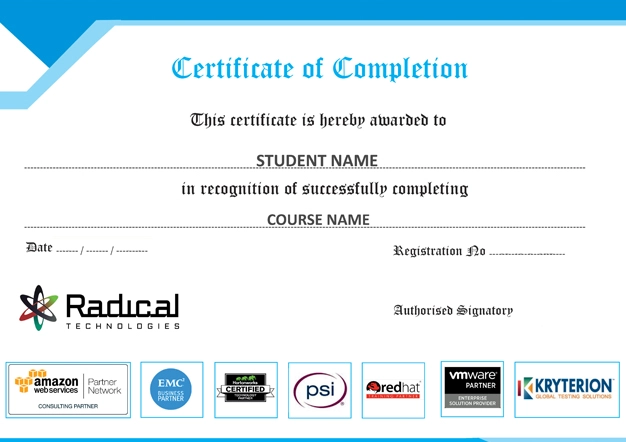


At Radical Technologies, we are committed to your success beyond the classroom. Our 100% Job Assistance program ensures that you are not only equipped with industry-relevant skills but also guided through the job placement process. With personalized resume building, interview preparation, and access to our extensive network of hiring partners, we help you take the next step confidently into your IT career. Join us and let your journey to a successful future begin with the right support.
At Radical Technologies, we ensure you’re ready to shine in any interview. Our comprehensive Interview Preparation program includes mock interviews, expert feedback, and tailored coaching sessions to build your confidence. Learn how to effectively communicate your skills, handle technical questions, and make a lasting impression on potential employers. With our guidance, you’ll walk into your interviews prepared and poised for success.
At Radical Technologies, we believe that a strong professional profile is key to standing out in the competitive IT industry. Our Profile Building services are designed to highlight your unique skills and experiences, crafting a resume and LinkedIn profile that resonate with employers. From tailored advice on showcasing your strengths to tips on optimizing your online presence, we provide the tools you need to make a lasting impression. Let us help you build a profile that opens doors to your dream career.








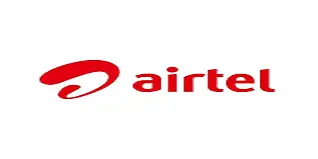
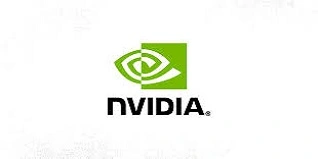
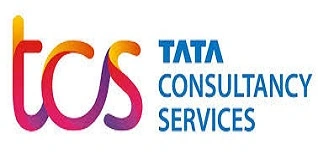

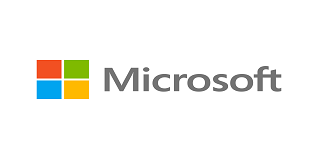
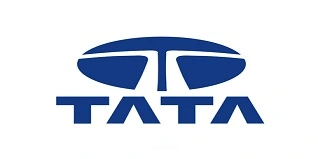

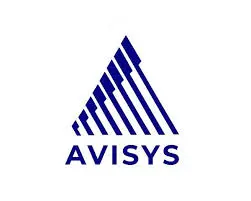
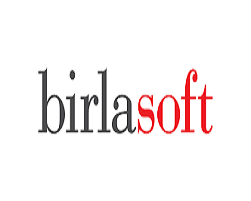
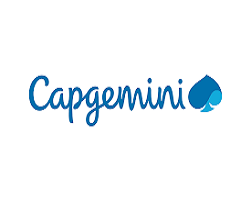
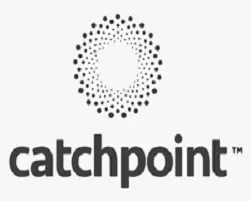
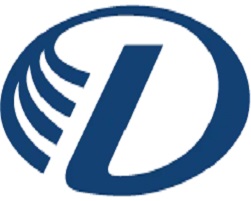
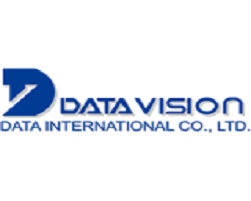
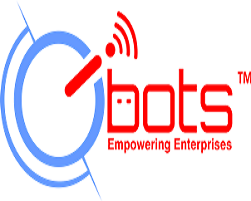
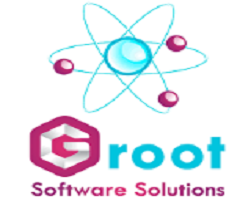
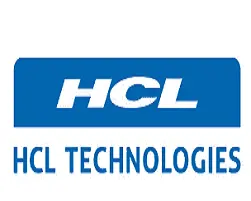
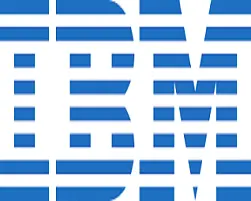
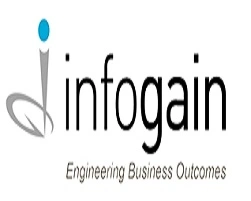
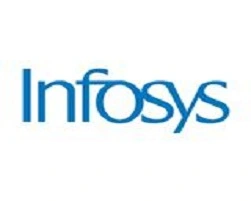
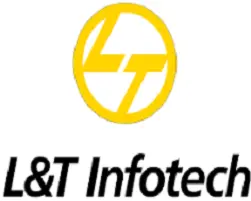
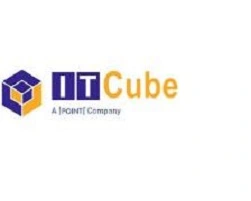
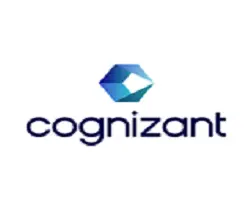
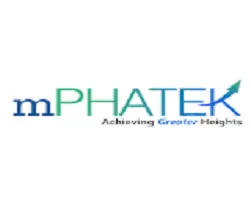
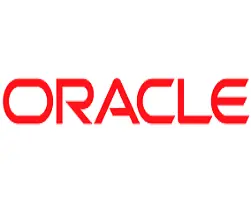
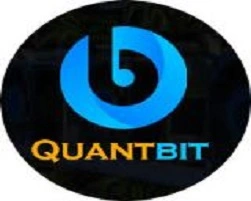
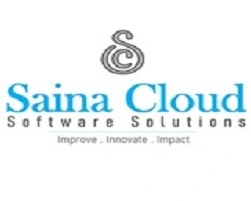



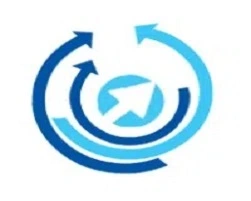
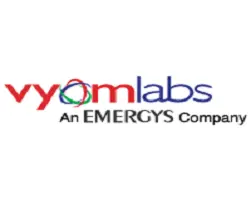
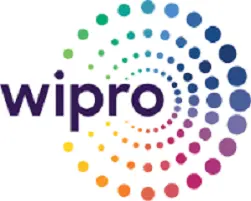
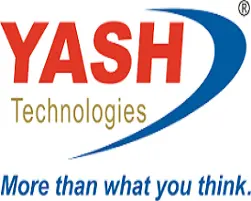
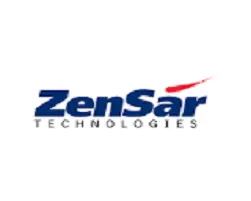
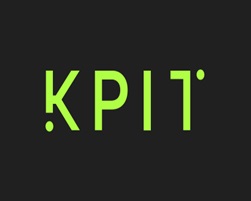
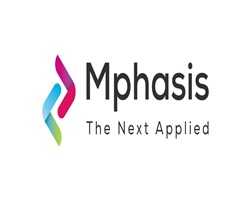
Kochi | Fort Kochi | Mattancherry | Ernakulam | Marine Drive | Kakkanad | Palarivattom | Kadavanthra | Chullikkal | Elamakkara | Kochi Port | Vyttila | Aluva | Thrippunithura | Panampilly Nagar | Edappally | Kothad | Njarackal
At Radical Technologies, we are committed to providing world-class Azure Data Engineer Training in Bangalore, helping aspiring data professionals master the skills needed to excel in the rapidly growing field of cloud data engineering. As the leading institute for Azure Data Engineer Course In Bangalore, we offer comprehensive, hands-on training designed to meet the demands of today’s data-driven organizations.
Our Azure Data Engineer Training Bangalore program covers every aspect of the Azure Data Engineer Syllabus, ensuring that students receive in-depth knowledge of data architecture, data processing, and data storage on Microsoft Azure. Whether you prefer attending classes in-person or via Azure Data Engineer Online Training, Radical Technologies provides flexible learning options to suit your needs.
Our Azure Data Engineering Training is renowned for its practical, real-world approach. Students have access to an industry-leading Azure Data Engineer Bootcamp, which combines theory and hands-on labs to ensure they are fully prepared for their certification exams. The Microsoft Azure Data Engineer Training is tailored to cover all key topics, from data integration to security, and is led by experienced professionals who are experts in their field.
For professionals and organizations seeking Azure Data Engineering Corporate Training, we offer tailored courses that address specific business needs. Our Azure Data Engineering Corporate Training Course ensures that teams gain practical experience in building scalable, secure, and efficient data solutions on Azure.
At Radical Technologies, our Azure Data Engineer Courses are structured to ensure that both beginners and experienced professionals alike can enhance their knowledge. The Azure Data Engineer Certification Training offered here equips students with the skills and credentials needed to stand out in a competitive job market.
Our institute also offers the Azure Data Engineer Full Course, which provides a comprehensive pathway for mastering Azure Data Engineering concepts and techniques. We take pride in being one of the top Azure Data Engineer Institutes in Bangalore, with a proven track record of helping students achieve their Azure Data Engineering Certification.
Whether you are looking for Azure Data Engineer Training Online or prefer our in-person classes in Bangalore, Radical Technologies is your trusted partner for career advancement in data engineering. Join us today to enroll in the Best Azure Data Engineer Course and kick-start your journey towards becoming a certified data engineer.


(Our Team will call you to discuss the Fees)


(Our Team will call you to discuss the Fees)